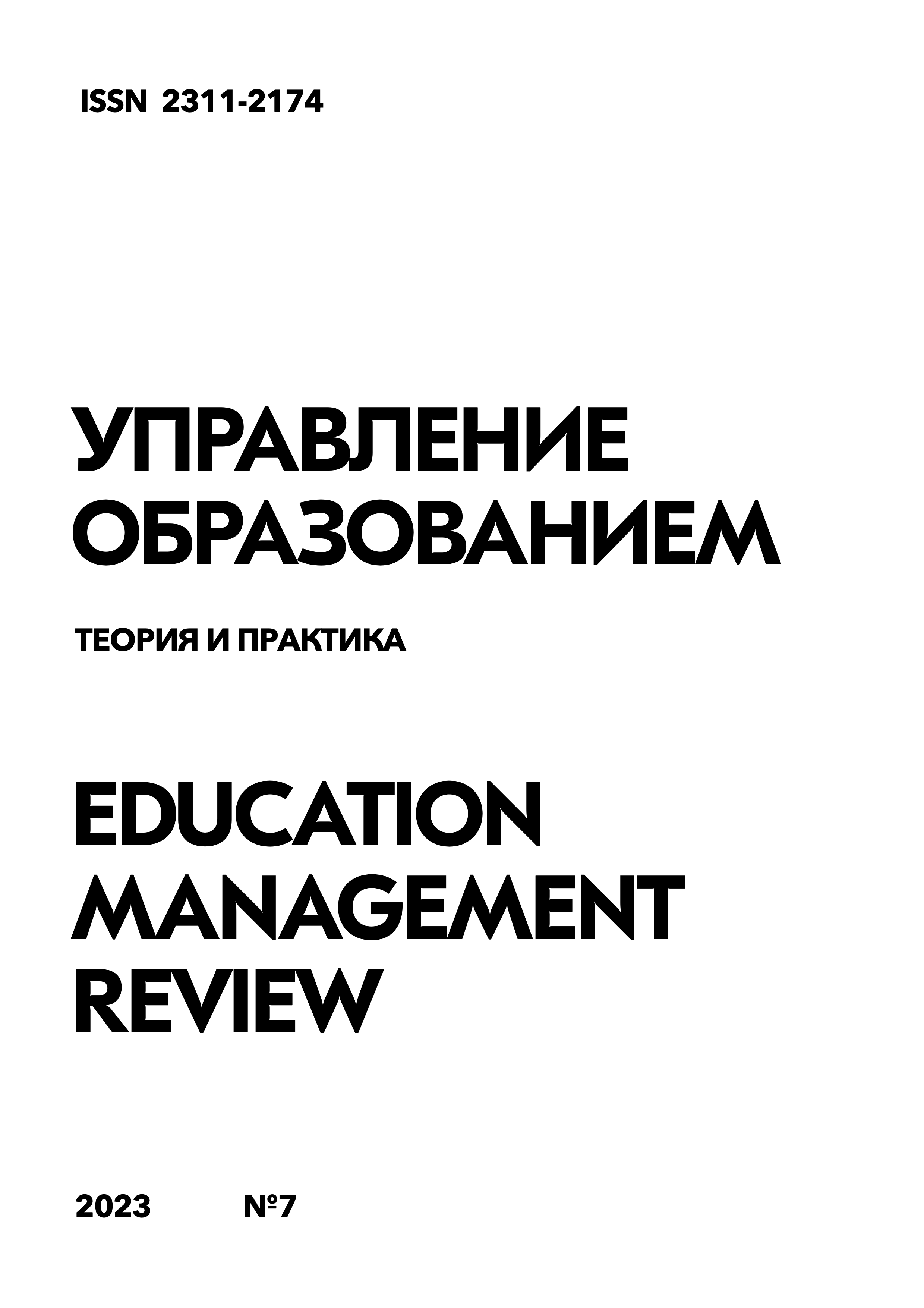Electronic portfolio as a tool of professional self-determination for masters of education
DOI:
https://doi.org/10.25726/z9852-8768-7418-wKeywords:
professional self-determination, electronic portfolio, pedagogical magistracyAbstract
Students entering the pedagogical master's program are in a situation of personal crisis and the search for new meanings and prospects for professional development. Research on the development of professional self-determination at the level of pedagogical magistracy in the context of digitalization is extremely scarce. Highly appreciating the didactic potential of the electronic portfolio as a means of digitalization, it should be noted the lack of systematic research on the models of its use in the professional self-determination of students of the pedagogical magistracy. The purpose of the study is to scientifically substantiate the model of using an electronic portfolio as a means of professional self-determination of undergraduates in the pedagogical direction and experimentally test its effectiveness. The following methods were used as the leading research methods: a set of psychodiagnostic methods and a survey of students of the 1st and 2nd courses of the pedagogical master's program at the Institute of Pedagogy, Psychology and Sociology of the SibFU. To measure the cognitive component of professional self-determination of undergraduates, the methods of L.B. Schneider, J. Holland; to diagnose the formation of the reflexive component, the methods of A.V. Karpinsky and A.V. Karpov. Motivationalvalue components were studied using the diagnostic methods of M. Rokeach, A. Rean. The pedagogical experiment proved the effectiveness of the use of an electronic portfolio in the professional self-determination of students in the process of studying in a pedagogical master's program. In the course of the study, didactic functions were identified and the possibilities of using an electronic portfolio as a means of professional selfdetermination of students enrolled in a pedagogical master's program were substantiated. An organizational and functional model of professional self-determination of undergraduates in the pedagogical direction has been developed, including the following blocks: scientific-targeted, meaningful, diagnostic. A significant pedagogical condition for professional self-determination of masters is the electronic course «E-portfolio in the presentation and recognition of achievements», which contains interactive tasks for goal setting, planning, modeling, selfassessment, reflection, development of self-presentation skills. The authors proposed theoretical and practical bases for the use of electronic portfolio as a means of professional self-determination can be extrapolated in further scientific researches devoted to the issues of informatization of education, development of e-learning.
References
Абульханова-Славская А.К. Стратегия жизни. М.: Мысль, 1991. 230 с.
Безукладников К.Э. Профессиональный портфолио как технология педагогического мониторинга уровня сформированности профессиональных компетенций студентов // Профессиональная подготовка педагогических кадров для системы образования Пермского края: материалы региональной научно-практической конференции, 18 апреля 2006 г., Пермь. Пермь: Пермский государственный педагогический университет, 2006. 170 с.
Буров К.С. Профессиональное самоопределение как научное понятие // Вестник ЮУрГУ. Серия «Образование. Педагогические науки». 2017. Т. 9. № 4. С. 57–67.
Ганзен В.А., Головей Л.А. К системному описанию онтогенеза человека // Психологический журнал. 1980. Т. 1. № 6. С. 42-53.
Гинзбург М.Р. Психологическое содержание личностного самоопределения // Вопросы психологии. 1994. № 3. С. 43-54.
Головаха Е.И. Жизненная перспектива и профессиональное самоопределение молодежи. Киев: Наукова думка, 1988. 144 с.
Головей Л.А. Дифференциально-психологические факторы профессионального самоопределения // Психологические проблемы самореализации личности / ред. Л.А. Головей, Л.А. Коростылева. Вып. 3. СПб.,1999. С. 76–83.
Завражнов В.В. Педагогическое обеспечение профессионального самоопределения будущих педагогов-психологов в вузе : дис. … канд. пед. наук. Пенза, 2010. 245 с.
Зеер Э.Ф., Сыманюк Э.Э. Методологические ориентиры развития транспрофессионализма педагогов профессионального образования // Образование и наука. 2017. Т. 19. № 8. С. 9-28.
Климов Е.А. Психология профессионального самоопределения. М.: Академия, 2004. 304 с.
Митина Л.М. Психология труда и профессионального развития учителя. М.: Академия, 2004. –20 с.
Новикова Т.Г., Пинская М.А., Прутченков А.С. Учительский портфолио студента-педагога // Вопросы образования. 2005. № 4. С. 174–189.
Полат Е.С., Бухаркина М.Ю., Моисеева М.В., Петров А.Е. Новые педагогические и информационные технологии в системе образования: учебное пособие для студентов педагогических вузов и системы повышения квалификации педагогических кадров / под ред. Е. С. Полат. Москва: Академия, 2002. 272 с.
Пряжников Н.С. Профессиональное самоопределение: теория и практика: учебное пособие. М.: Академия, 2008. 117 с.
Смолянинова О.Г. Технология электронного портфолио в образовании: российский и зарубежный опыт: монография. Красноярск: Сибирский федеральный университет, 2012. 332 с.
Barrett H. C. Researching Electronic Portfolios and Learner Engagement: The Reflect Initiative // Journal of Adolescent & Adult Literacy. – 2007. – Vol. 50 (6). – P. 436–449.
Cambridge D. Eportfolios for lifelong learning and assessment. – San Francisco, CA: JosseyBass, 2010. – 288 p.

